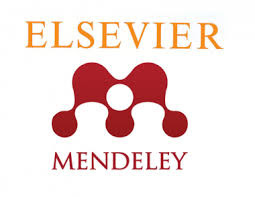INTERNATIONAL JOURNAL OF CREATIVE RESEARCH THOUGHTS - IJCRT (IJCRT.ORG)
International Peer Reviewed & Refereed Journals, Open Access Journal
ISSN Approved Journal No: 2320-2882 | Impact factor: 7.97 | ESTD Year: 2013
Call For Paper - Volume 12 | Issue 7 | Month- July 2024
Scholarly open access journals, Peer-reviewed, and Refereed Journals, Impact factor 7.97 (Calculate by google scholar and Semantic Scholar | AI-Powered Research Tool) , Multidisciplinary, Monthly, Indexing in all major database & Metadata, Citation Generator, Digital Object Identifier(DOI)
Contact Us Click Here
WhatsApp Contact Click Here
Published Paper Details:
Paper Title
THE INTERFERENCE OF SECOND LANGUAGE LEARNING IN THE UNDERSTANDING OF COLLOCATION
Authors
Larisha Jasmine
Keywords
collocations
Abstract
Choosing how wide to cast the net in the search for pertinent papers presents perhaps the biggest problem in developing a research timeline on teaching and learning collocation. For one issue, not all (applied) linguists and practitioners agree on what is meant by the term "collocation." Another example is that things that are classified as collocations in one study could be given a different name in another. The term "collocation" refers to the method in which words in the English language are naturally combined. Knowing which words collide is crucial (commonly go together). This method focuses mostly on the co-occurrence of words, or how words "partner" with one another. But can taking into account their semantic characteristics improve our comprehension of collocations? Since there appear to be three forms of collocation from a meaning-focused standpoint, we think teachers should pay attention to more than simply the literal pairing of words (Macis and Schmitt, 1).
Collocation is the term used to describe the above-chance co-occurrence of two words in the field of corpus linguistics. One of the existing measures of collocational strength, such as the mutual information (MI) score, can be used to quantify the likelihood that two words would co-occur in a corpus within a specific period of dialogue. The stronger the word relationship or collocation, the higher the score. Word substitutions that cause cooccurrences to deviate from the norm (e.g., using very religious instead of deeply religious) will typically stand out as unusual or "non-idiomatic" (idiomatic in the sense of "combining words like a native speaker") (Boers et al., 1). Regardless of how they are understood, collocations are a subclass of set phrases. Set phrases are extremely important because people speak in set phrases rather than in isolated words. However, fixed phrases, or phrasemes, pose one of the main challenges in theoretical linguistics as well as in the creation of dictionaries. Collocations are described by Nesselhauf as "a type of word combination in a certain grammatical pattern" and are used to refer to "an abstract unit of language and its instantiations in texts" (Akinci et al., 2)
IJCRT's Publication Details
Unique Identification Number - IJCRT2303320
Paper ID - 232265
Page Number(s) - c841-c849
Pubished in - Volume 11 | Issue 3 | March 2023
DOI (Digital Object Identifier) -
Publisher Name - IJCRT | www.ijcrt.org | ISSN : 2320-2882
E-ISSN Number - 2320-2882
Cite this article
Larisha Jasmine, "THE INTERFERENCE OF SECOND LANGUAGE LEARNING IN THE UNDERSTANDING OF COLLOCATION", International Journal of Creative Research Thoughts (IJCRT), ISSN:2320-2882, Volume.11, Issue 3, pp.c841-c849, March 2023, Available at :http://www.ijcrt.org/papers/IJCRT2303320.pdf
Article Preview
Indexing Partners
Call For Paper July 2024
Call For Papers
July 2024
Volume 12 | Issue 7
Last Date :
31-Jul-2024
Submit Manuscript Online Impact Factor: 7.97 Review Results : Within 02-03 Days Paper Publication : Within 02-03 Days
July 2024
Volume 12 | Issue 7
Last Date :
31-Jul-2024
Submit Manuscript Online Impact Factor: 7.97 Review Results : Within 02-03 Days Paper Publication : Within 02-03 Days
Published Issue Details
For Authors
Forms / Downloads
Other IMP Links
Indexing Partner
Research Area
LICENSE
ISSN and 7.97 Impact Factor Details

ISSN: 2320-2882 Impact Factor: 7.97 and ISSN APPROVED Journal Starting Year (ESTD) : 2013
ISSN and 7.97 Impact Factor Details

ISSN: 2320-2882 Impact Factor: 7.97 and ISSN APPROVED Journal Starting Year (ESTD) : 2013
DOI Details
CONFERENCE
CONFERENCE MANAGMENT & PUBLICATION CONFERENCE PROPOSAL
RECENT CONFERENCE

CONFERENCE PROPOSAL CONFERENCE PROCEEDINGS

CONFERENCE PROPOSAL CONFERENCE PROCEEDINGS
For Reviewer /Referral (RMS) Earn 500 per paper
Important Links
NEWS & Conference
Digital Library
IJCRT RMS | Earn 500 Per Paper.
LICENSE
Indexing Partner





































































